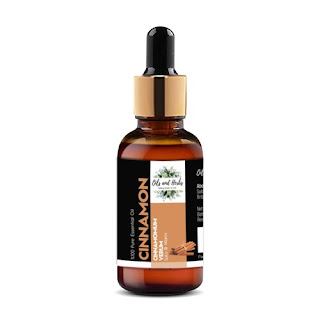Use Cinnamon Essential Oil for Cholesterol and Digestive Problems
Cinnamon essential oil is distilled from both the bark and the leaf of the cinnamon plant. The aroma of cinnamon essential oil that has been distilled from the bark is similar to that of cassia (Chinese cinnamon) and is often combined with frankincense as well as other oriental woods. However, cinnamon essential oil can cause skin irritation and should be handled with care. These types of essential oils are especially well used in aromatherapy to warm and relax the person being treated.
While the aroma produced by the oil distilled from cinnamon leaves is more reminiscent of the smell of cloves than cinnamon because it contains eugenol in large quantities. It is often best mixed with oriental fragrances and as mentioned earlier it should be handled with care as it can cause skin irritation. Wherein the essential oil from cinnamon bark is ideal for aromatherapy where a person wants to feel warm and cosy, which seems to be distilled from the leaf and leaves a person refreshed and alive.
The primary constituents of cinnamon are cinnamaldehyde, gum, tannins, mannitol, coumarin and essential oils known as aldehydes, eugenol and pinene. Since it is mainly used as a carminative in addition to herbal remedies.
Some recent studies have shown that you can lower blood sugar, cholesterol and triglyceride levels by up to 20% if you consume 1/2 teaspoon of cinnamon per day. For patients who suffer from type II diabetes and who are not taking insulin, it is a mild carminative as well as an excellent remedy for the nausea and flatulence that these people suffer from. While it can be used by itself or as a combination therapy to treat diarrhoea.
Chinese herbalists suggest that people who are in their 70s or 80s and develop a cough that often involves spitting up white phlegm from their throats should chew and swallow a small pinch of powdered cinnamon. This remedy also seems to help people who have cold hands and feet (especially at night). Cinnamon is not only great for reducing appetite and dealing with indigestion problems such as flatulent indigestion, indigestion with nausea, intestinal colic as well as digestive weakness that comes with colds and other debilitating conditions. is attached to. It can also help relieve the effects of nausea and vomiting and, because it is a mild astringent, is especially useful to use on infantile diarrhea.
The essential oil found naturally in cinnamon is known to be a potent antibacterial, anti-fungal and uterine stimulant and the oil contains certain terpenoids that are believed to be responsible for cinnamon's medicinal effects.
Although test tube studies have shown that cinnamon can enhance the action of insulin, no clinical trials have yet proven that cinnamon can improve insulin action in people with diabetes. More than 170 million people worldwide suffer from diabetes and this number continues to grow. Maybe many of these could really benefit from being able to pick up such an easily accessible product. There is evidence that this spice has almost as much power in lowering blood sugar levels as statin drugs.
It is believed that a substance known as MHCP is the reason why cinnamon reactivates the body's fat cells to respond to insulin and this dramatically increases the removal of glucose. There have also been some studies that reveal new evidence that it acts as an anti-oxidant agent as well as an anti-inflammatory agent, and that it can lower cholesterol, triglycerides, and glucose, as well as insulin resistance. Can improve performance.
There really is no denying that the power of cinnamon in helping some diabetics or pre-diabetics cannot be denied. However, it is important that you talk to your doctor before taking cinnamon in case it has any effect on medications you are already taking.
Essential oils are very potent on their own and cinnamon essential oil should never be taken internally unless under the supervision of a qualified professional.


.png)

Comments
Post a Comment